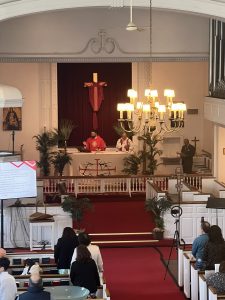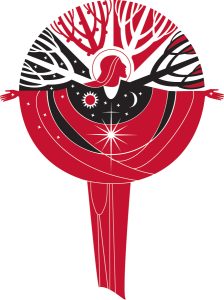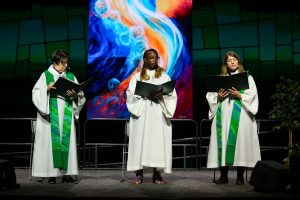
08.01.25 – Phoenix, Arizona – Friday’s plenaries end with an evening prayer at the 2025 Churchwide Assembly in Phoenix.
On Friday evening August 1 as part of the ELCA’s Churchwide Assembly, the assembly’s worship included a confession and repentance for the sins of patriarchy and sexism. This was, in part, to fulfill an implementing resolution to the 2019 ELCA social statement, Faith, Sexism, and Justice: A Call to Action.
As we reflect upon this moment, it’s important to consider the meanings of confession and repentance. The following background is provided in the resource Forgive Us and Transform Us for the Life of the World, p. 46.
What is Confession?
Luther teaches us that confession has two parts that work together: we tell God our sins and we receive God’s forgiveness (Small Catechism, Part V: Confession). When we confess, we’re living out our faith — we’re being honest about the ways we’ve hurt ourselves, the neighbor, and creation, by what we’ve done and what we’ve failed to do. Picture it like standing in a bright light; everything is visible, but instead of this provoking fear, it becomes freeing. No matter what you confess, God’s love will never abandon you — it’s a promise.
What is Repentance?
Repentance goes deeper than just feeling bad about what we’ve done wrong. It’s about truly changing how we live and act. Think of it as making a complete turn — away from harmful ways and toward God’s way of love and justice. To be clear, we don’t make this turn by our own strength. The Holy Spirit does this work in us, giving us courage to think and live differently. Luther explains in the Smalcald Articles that true repentance includes both truly being sorry for our sins and deeply believing that Christ forgives any and all sins (Smalcald Articles, Part III, Article III). This coming together of being and believing leads to the change in how we act and live; it leads to transformation.
The text for the Confession used at the Churchwide Assembly is provided below. We understand that the use at the Churchwide Assembly is only the beginning of an ongoing process. You are invited to implement in your context as desired. Also, you are encouraged to read and share the full resource, Forgive Us and Transform Us for the Life of the World. You can also learn more about the ELCA’s work with Gender Justice and Women’s Empowerment. You’ll see on this website that the Forgive Us and Transform Us resource is available for download in both English and Spanish.
Confession and Repentance for the Sins of Patriarchy and Sexism
Good and gracious God, you have created us for flourishing and abundance, yet we deny and diminish the promises you have made to us and all creation.
We come before you in confession and repentance for the sins of patriarchy and sexism, seeking forgiveness and transformation.
Let us confess our sin in the presence of God and of one another.
Silence for reflection.
Creator of the cosmos, we confess our complicity in the sins of patriarchy. You envision communities built on mutuality, wonder, and neighbor justice, but we entangle ourselves in systems of oppression that harm individuals and stunt our ability to imagine abundant life for all.
Forgive us and transform us. 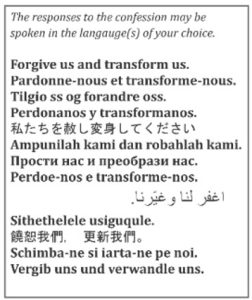
Lover of the world, we acknowledge that sexism shapes every corner of our lives. In our homes, schools, workplaces, townships, neighborhoods, and churches— and even in our own hearts, women and girls are silenced and sidelined, which is an affront to your divine goodness. We bring before you the cries of every age, trusting you to bear the pains we name, and the suffering known only to you.
Forgive us and transform us.
Source of wisdom, gender is not a monolith; it is vast, diverse, and beautifully infinite. We repent of the ways society subjects women of color, same-gender loving women, trans women, and non-binary people to virulent forms of discrimination and violence. We grieve how humanity corrupts your sacred compassion through harassment, domination, and control.
Forgive us and transform us.
Holy Midwife, your vision is stronger than the lines of oppression that humanity has drawn. Your good and gracious news is for all, regardless of gender, race, ethnicity, sexual orientation, class, citizenship, marital status, age, education, ability, or any other distinction people have weaponized to divide us one from another. Give us moral courage to interrupt acts that do not serve the common good and to dismantle the systems that cause harm.
Forgive us and transform us.
Creative Spirit, inequity runs through the very fabric of our denomination. We lament that patriarchal language dominates our places of worship, gender bias persists in call processes and pay scales, and the stained-glass ceiling often keeps female-identifying rostered ministers from senior leadership. Inspire your church to treasure the expansive images found in scripture and through the fullness of our lived experiences. Compel us to uplift those whom others have subjugated.
Forgive us and transform us.
God who calls, you invite us into The Way— a way built neither on pride nor on shame but on creation’s interconnected flourishing. Unearth in your church a bold pursuit to make space for women and girls— our giftedness, our voices, our bodies, our choices, our dreams. For we know that you always work beside us, renewing, repairing, and closing the gap between the world as it is and the world as it ought to be.
Forgive us and transform us.
Dear ones, sinners and saints, receive the good news: patriarchy, misogyny, sexism, homophobia, and white supremacy do not define you; instead, God forgives you and has imprinted love, grace, justice, and abundant life on your hearts forever. As we grieve, let us also trust in Jesus Christ’s power to liberate this gathered assembly, the church, and the whole world. Through the Spirit, we shall be transformed for God’s promised future.
Let the church say: Amen, thanks be to God!
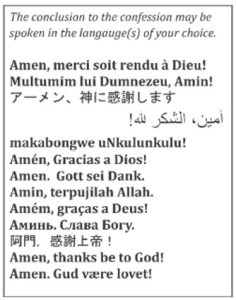

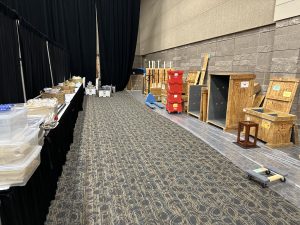
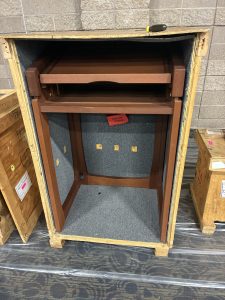
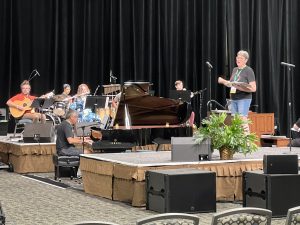
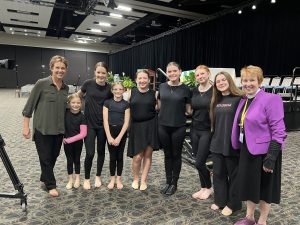
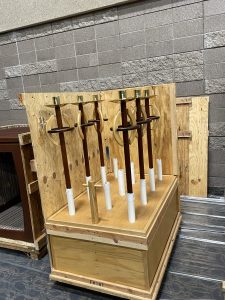


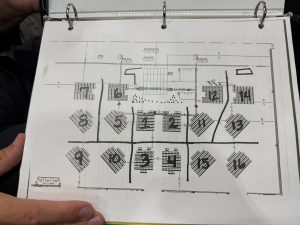
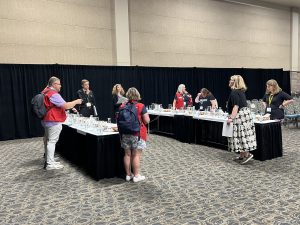
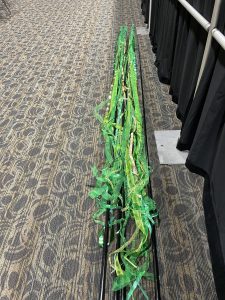


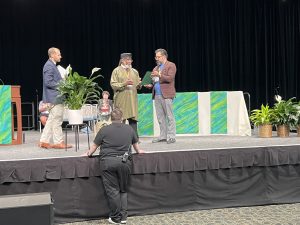
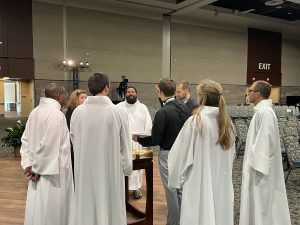
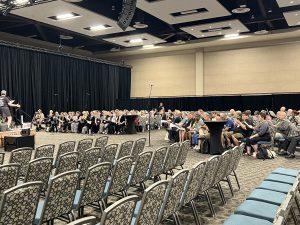
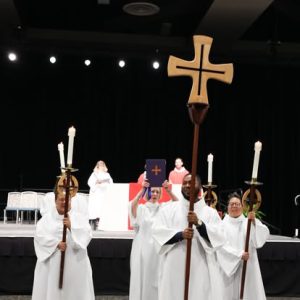
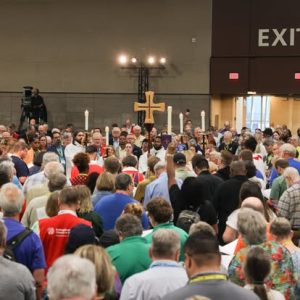
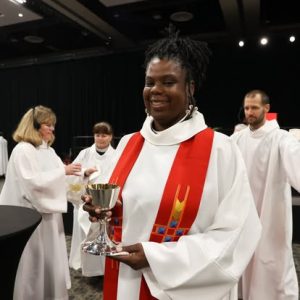
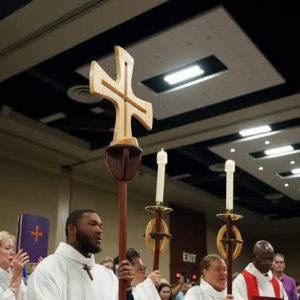
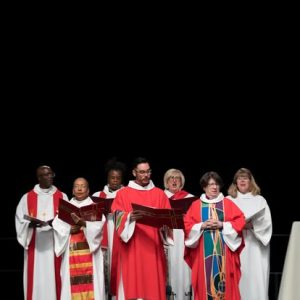
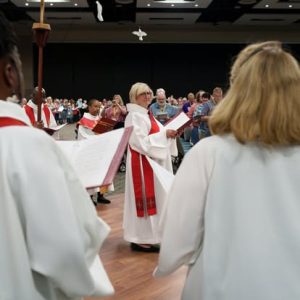
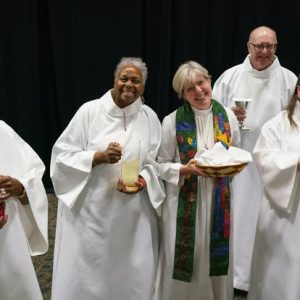
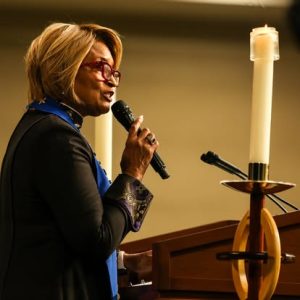
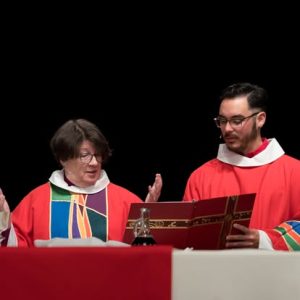
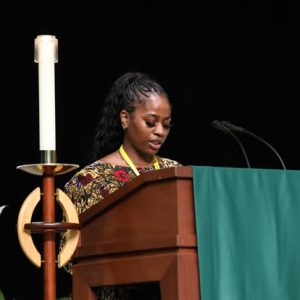
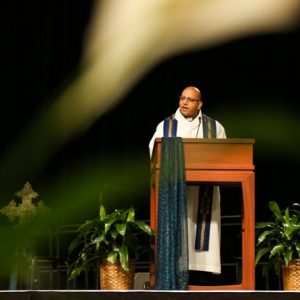
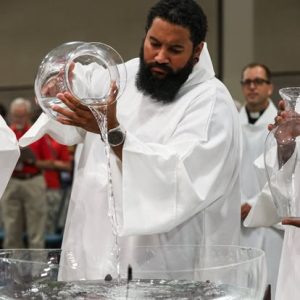
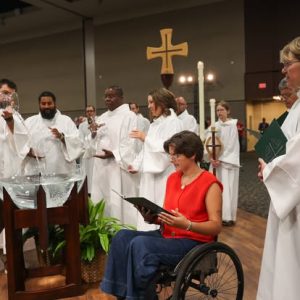
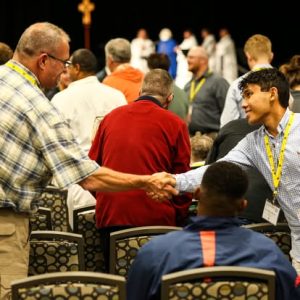
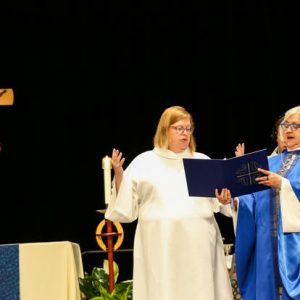
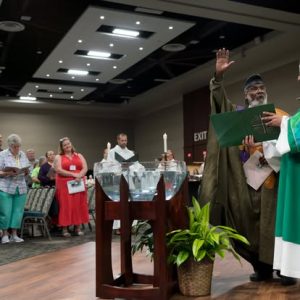
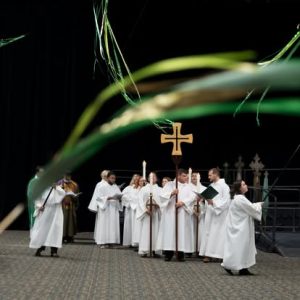
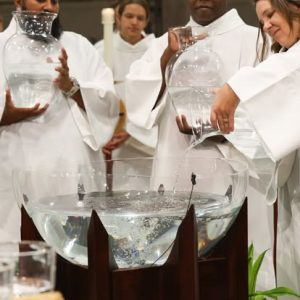
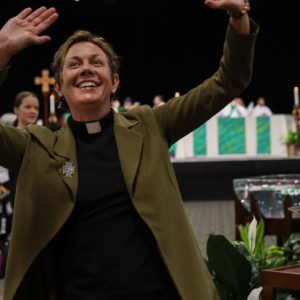
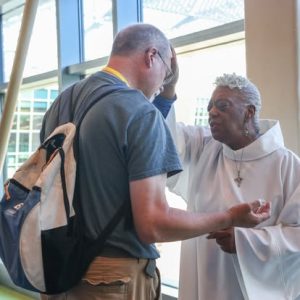
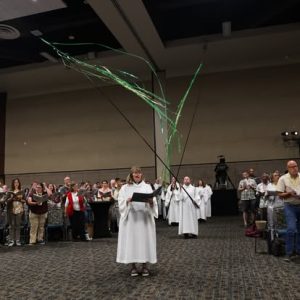
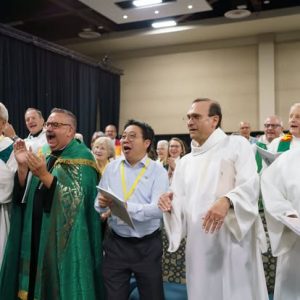
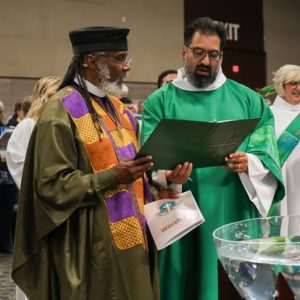

 The Power of Language in Worship
The Power of Language in Worship